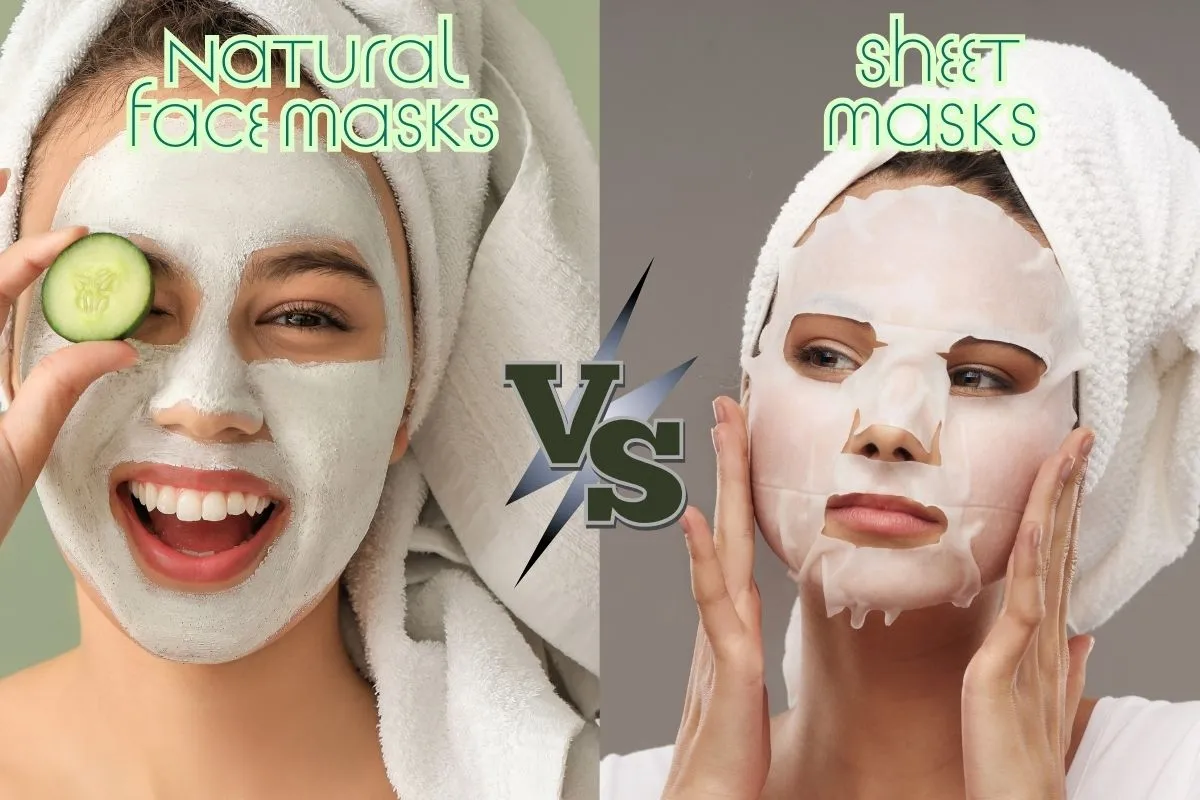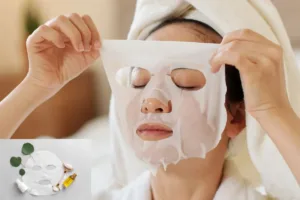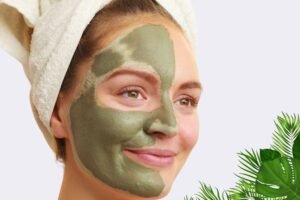No products in the cart.

In a world where skincare shelves are overflowing with trendy products and quick fixes, finding something that truly nourishes your skin feels like a rare win. If you’ve ever felt overwhelmed by complicated labels, harsh ingredients, or products that promise a glow but deliver breakouts, you’re not alone. The shift toward chemical-free skincare is more than a fad—it’s a conscious choice. More and more people are turning to natural face masks that are handmade, organic, and packed with real ingredients your skin loves.
Natural face masks are better than sheet masks because they go beyond surface-level hydration, offering deep, lasting benefits without the synthetic overload. So, if you’re ready to swap the superficial for something genuinely transformative, keep reading—your skin deserves better.
“At Hudira, we believe in skincare that speaks nature’s language—our all natural, chemical-free face masks blend the power of organic ingredients with the purity your skin deserves. Because real beauty begins with real ingredients.”
What Are Natural Face Masks?
Natural face masks are crafted using ingredients derived from nature—think fruits, clays, essential oils, and herbal extracts. Unlike conventional options, they skip synthetic additives, preservatives, and artificial fragrances. Instead, they embrace plant-based nourishment that works in harmony with your skin’s biology. These masks are often handmade in small batches, ensuring high-quality and potent formulations. The result? A skincare ritual that feels pure, purposeful, and effective.
From healing acne to restoring moisture, natural masks are tailored to solve common skin concerns without harsh chemicals. Organic ingredients like turmeric, aloe vera, and rose water help balance your skin naturally. Over time, this translates into long-lasting skin health rather than fleeting effects. Because they’re free from irritating chemicals, they’re ideal for sensitive and acne-prone skin types. With every application, you’re not just masking—you’re treating your skin to a holistic, healing experience.
Understanding Sheet Masks: The Trendy Quick Fix
Sheet masks became an instant hit thanks to their convenience and Instagrammable appeal. These single-use masks are soaked in a serum, typically containing active ingredients that promise hydration, brightening, or firming effects. However, many sheet masks are loaded with synthetic chemicals, alcohols, and artificial fragrances that may irritate the skin. Plus, the material used—often polyester or plastic fiber—can trap bacteria if not used correctly. While the glow may be instant, it’s often short-lived.
Unlike natural face masks, sheet masks don’t allow your skin to breathe during application. Many rely on silicone-based ingredients for that smooth “glass skin” finish, which can clog pores over time. If you’re using them frequently, the chemical buildup may actually damage your skin barrier. Moreover, they’re not designed for long-term healing or detoxifying. Sheet masks are great for a photoshoot prep—but not for your everyday glow goals.
Why Natural Face Masks Win: Skin Benefits That Go Deeper
Natural face masks work from within, offering benefits that extend beyond surface-level hydration. They’re packed with nutrients like vitamin C, minerals, and antioxidants that help repair skin cells and improve texture over time. Instead of masking symptoms, they target root causes like inflammation, oil imbalance, or environmental damage. Your skin begins to heal and strengthen with regular use of natural formulations. This makes them a sustainable part of any effective skincare routine.
With no harsh chemicals to disrupt your skin’s pH or microbiome, the effects of natural skincare masks are cumulative and long-lasting. Whether you’re dealing with acne, dullness, or sensitivity, natural ingredients offer targeted relief. For example, a clay-based mask can detoxify pores while calming redness. A honey-and-turmeric blend can fade acne scars while keeping skin hydrated. The results aren’t just visible—they’re deeply felt.
Ingredients Matter: A Look at What Goes on Your Skin
It’s essential to know what you’re putting on your face. Below is a comparison of common ingredients found in sheet masks versus natural face masks:
Natural Face Masks | Sheet Masks |
Aloe Vera | Alcohol (drying) |
Kaolin Clay | Silicone (pore-clogging) |
Turmeric | Fragrance (irritating) |
Raw Honey | Synthetic preservatives |
Essential Oils (Lavender, etc.) | Parabens (hormone disruptors) |
Natural masks let your skin breathe, heal, and thrive. In contrast, sheet masks often overwhelm the skin with synthetic overload. Transparency is key in skincare—always check the label. Opt for products with clear, recognizable ingredients. Your skin absorbs what you feed it—so make every ingredient count.
Environmental Impact: Sustainability and Waste 
Let’s talk eco. Sheet masks are notoriously wasteful—they’re single-use, non-biodegradable, and come in plastic-heavy packaging. When multiplied by millions of users, the environmental footprint is massive. On the other hand, chemical-free face masks, especially those in powder or paste form, often come in recyclable or reusable containers. Many natural brands, like Hudira, also focus on zero-waste skincare packaging, helping you reduce your beauty-related waste.
Going green with your skincare doesn’t just benefit your face—it supports the planet too. Opting for natural masks made with biodegradable ingredients ensures your beauty rituals don’t harm the environment. Less plastic, fewer chemicals in our water systems, and more sustainability—it’s a win-win. Supporting eco-conscious brands contributes to a cleaner, safer world. Your small skincare swap can make a big impact.
Real-World Results: What Users Say
Those who’ve made the switch to natural face masks rarely go back. Many report clearer, softer, and more balanced skin within just a few weeks. Unlike synthetic products that often provide a quick fix, natural masks support your skin’s long-term wellness. Testimonials consistently highlight reduced breakouts, faded scars, and an overall glow. And because they’re free of harsh chemicals, irritation becomes a thing of the past.
Here’s what real users say:
- “My acne cleared up after just two weeks of using a turmeric-based natural mask.”
- “I used to rely on sheet masks every day, but my skin is way happier since going natural.”
- “Natural masks just feel better—I love knowing what’s in them.”
- “They last longer too, especially powder masks that I can mix as needed.”
- “Zero irritation, and I finally feel like my skin is actually healing.”
Making the Switch: How to Choose the Right Natural Face Mask
Looking to start your chemical-free skincare journey? Choose masks that are handmade, organic, and tailored to your skin type. Look for products free from parabens, sulfates, artificial fragrance, and synthetic dyes. Prioritize ingredients you recognize—like clay, honey, or essential oils. Read reviews and check if the product is formulated or tested by skincare professionals.
Avoid greenwashing—some brands label their products as “natural” but still include harmful chemicals. Choose brands that are transparent with their ingredient lists and ethical in their practices. If you have acne-prone skin, go for masks with anti-inflammatory ingredients like turmeric or neem. For brightening, vitamin C-rich masks like orange peel or papaya are ideal. Taking the time to choose well will give your skin the results it deserves.
Hudira’s Chemical-Free Glow Revolution
At Hudira, we believe skincare should be as pure as your intentions. Our handmade natural face masks are formulated in the USA and made in Pakistan using only the finest organic ingredients. The Orange Glow Face Mask is rich in vitamin C to brighten and rejuvenate your skin, while our Anti-Acne Face Mask is packed with turmeric, clay, and neem to heal blemishes and calm inflammation. We say no to harsh chemicals and yes to radiant, healthy skin.
With Hudira, every product is crafted with care, eco-consciousness, and love for your skin. Our packaging is minimal and recyclable, supporting a low-waste lifestyle. Whether you’re new to natural skincare or ready to level up your routine, Hudira makes it easy to glow—without compromise. Ready to ditch the sheet and embrace the real glow? Your skin will thank you.
Conclusion
Sheet masks might offer temporary shine, but natural face masks give your skin a chemical-free glow that lasts. With real ingredients, sustainable practices, and deep skin benefits, natural masks are a game-changer in every skincare routine. It’s time to move beyond the trend and embrace the tradition of holistic, nourishing skincare. Choose handmade, choose clean, choose glow—choose natural. Start your journey today with Hudira and let your skin glow the way nature intended.
FAQs
Q1. Are natural face masks safe for sensitive skin?
Yes, natural face masks are generally safe for sensitive skin because they’re free from harsh chemicals, artificial fragrances, and synthetic preservatives. Ingredients like aloe vera, chamomile, and oatmeal are known for their soothing and calming effects. However, it’s always best to do a patch test before applying any new product. Choose chemical-free skincare options that are specifically formulated for sensitive or acne-prone skin. Avoid masks with strong essential oils or exfoliants unless advised by a dermatologist.
Q2. How often should I use a natural face mask?
For most skin types, using a natural face mask 1–3 times per week is ideal. If the mask is gentle and hydrating, like a honey or aloe-based one, you might use it more frequently. For detoxifying masks with clay or charcoal, limit use to once a week to avoid over-drying. Always follow the instructions provided by the brand. Consistency is key—natural ingredients work best over time with regular use.
Q3. What makes sheet masks less effective than natural masks?
While sheet masks offer quick hydration, they often rely on synthetic chemicals for fast results. These can include alcohols, silicones, and artificial fragrances, which may cause irritation or clog pores. In contrast, natural face masks are rich in whole plant ingredients that heal, detoxify, and nourish the skin over time. Sheet masks also tend to sit on the skin without deep penetration, offering superficial benefits. Plus, they generate more waste, making them a less sustainable skincare choice.
Q4. Can I make my own natural face masks at home?
Absolutely! DIY natural face masks can be made with ingredients from your kitchen like yogurt, honey, turmeric, and oatmeal. These homemade masks are great for occasional use and give your skin a quick, chemical-free boost. However, for consistent results and professional-grade formulations, it’s a good idea to invest in quality handmade or organic skincare products. Brands like Hudira offer carefully balanced masks that combine traditional ingredients with expert formulation.
Q5. How do I know if a natural mask is truly chemical-free?
Look for clear, simple ingredient lists—if you can’t pronounce half the ingredients, it’s likely not truly natural. Avoid products with parabens, sulfates, PEGs, synthetic dyes, or “fragrance” as a listed ingredient. Certified organic or handmade skincare brands often provide full transparency. Trustworthy brands like Hudira disclose all their ingredients and stick to clean, chemical-free skincare standards. Always check for certifications or third-party testing if you’re unsure.





3 comments
Pingback:
How Hudira’s Orange Glow Face Mask Gives Instant Brightness - hudira.comPingback:
3 Reasons to Add a Face Mask to Your Weekly Skincare Routine - hudira.comPingback:
The Science Behind Natural Acne Solutions: Why Hudira’s Mask Works - hudira.com